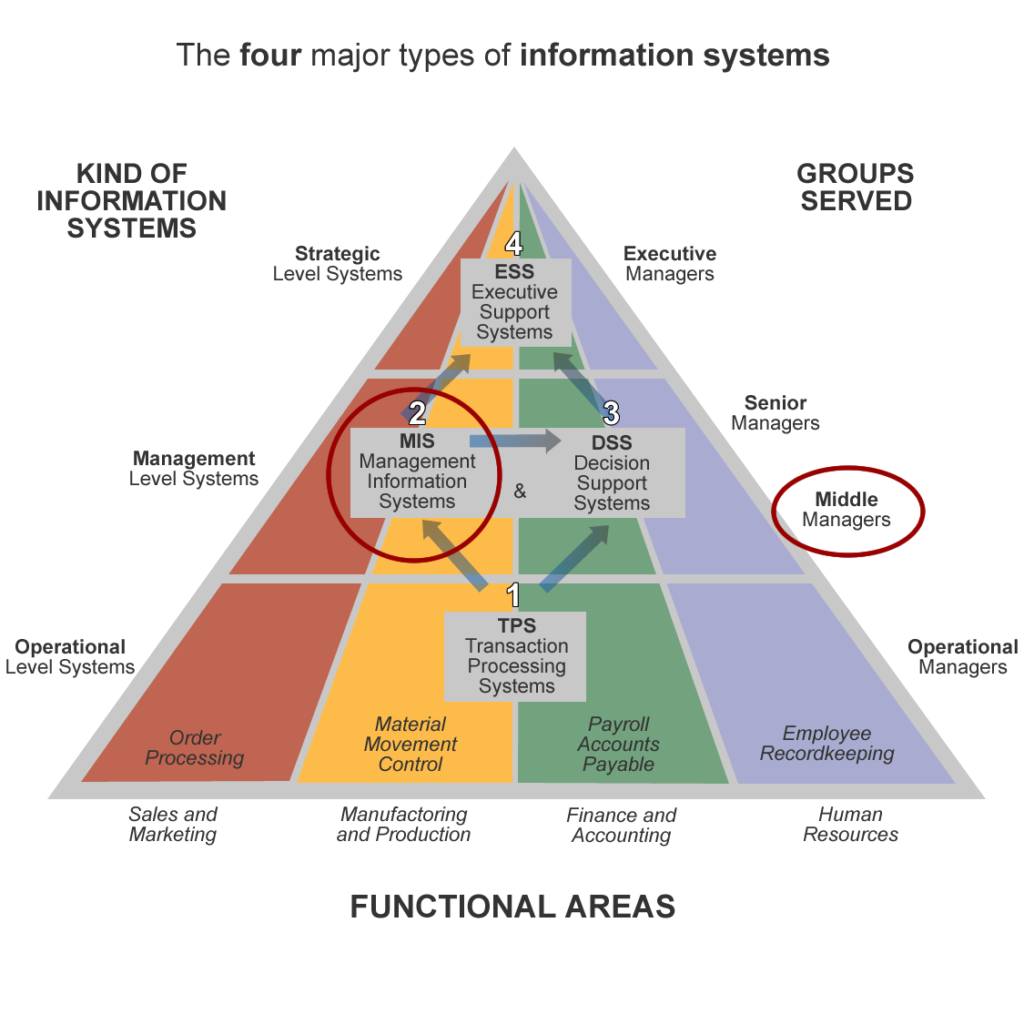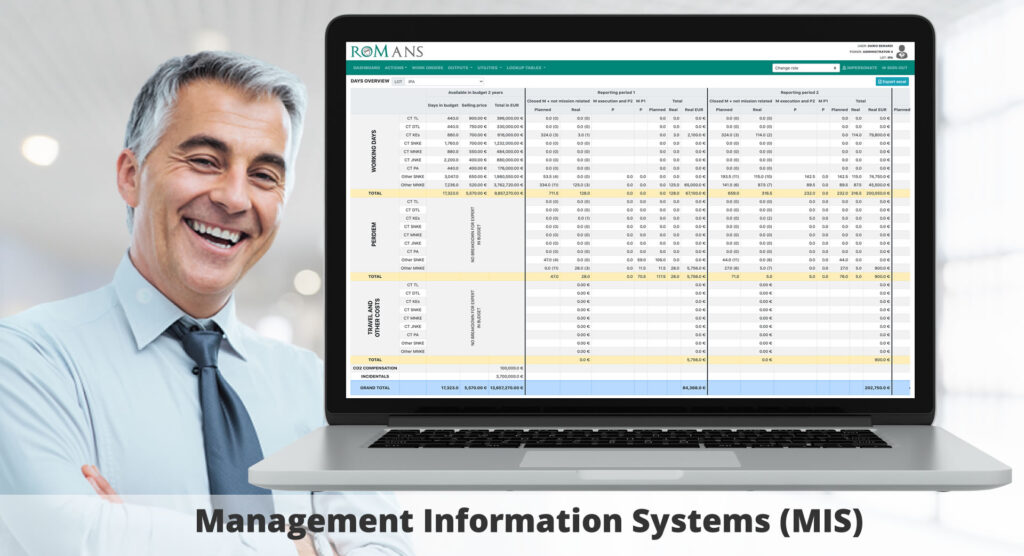A corporate information system is made up of data, human resources, tools and procedures present in the company, which then interact to generate exchanges of information that can guide any business decision or process.
And a computer system supports the information system, making it more effective and efficient, by means of technology and automation, helping with data collection, archiving and storage, processing and distribution.
Within a business, we typically find different functional areas: “procurement/production/logistics”, “sales/marketing”, “accounting/finance” and “human resources.”
And for each of these functional areas, there are different needs in terms of information: an operational level, a management level and a strategic level.
In short, different systems for different needs:
- Transaction Processing Systems (TPS) for the level of operational and transactional information useful to those overseeing the individual functional areas;
- Management Information Systems (MIS) and Decision-Support Systems (DSS) for the level of management information useful to medium-level managers;
- Executive Support Systems (ESS) for the strategic level of information useful to top management.

DEV4U is specialised in the design and development of Management Information Systems (MIS) for both private companies and public entities and the PA.
The term MIS (Management Information System) therefore indicates a computer system that supports the corporate management, providing the tools by which to efficiently manage the control, organisation and planning of the functional areas and to carry out analyses and prepare summary reports.
The input information for the MIS essentially comes from the processing of data on corporate transactions. The output information comprises different types of reports: periodic and scheduled reports, reports on specific requests, key business indicators, reports on exceptions and anomalies.
The aim is to help managers with decision-making processes and processes for the control and assessment of business, providing them with all information necessary.

The MIS includes modules for:
- user management (groups and roles for administrator and users);
- initial dashboard with summary data and to-do-list;
- project management;
- data import and export via Excel file;
- pre-invoicing management: time sheets and reports on activities carried out by employees, consultants and experts;
- management of transfer costs (reimbursements, per diem allowances, etc.);
- calendar of activities (missions, projects, work phases, etc.);
- common activity agenda (team calendar);
- management of employee and expert availability;
- management of festivities, holiday plans, permits and shifts;
- working party management;
- direct messaging between MIS users;
- reports (web & pdf);
- training management with modules on video conferencing, LMS and web collaboration;
- shared documents;
- media gallery (photographs, videos, etc.).
DEV4U designs and customises MIS with new functions in order to optimise the business processes and workflows characterising each business, public entity or the PA.
Below is a list of the advantages of using an MIS:
Business process automation
Business process automation, through the MIS, leads to automatic responses in real time that can facilitate and speed up human work.
Interoperability
Interventions in favour of the interoperability of TPS and MIS foster the sharing of information and the discovery of value.
Collaboration
MIS are software platforms that can facilitate and enhance the efficiency of cooperative work, simplifying the exchange of documents and organising teamwork dynamically.
Improving decisions
Thanks to the MIS, a real time vision of the overall business situation with indicators and trends offers greater accuracy in managerial decisions.

Want to find out more about our MIS solution?
Contact us now for a demo or interview!
Discover the pages of our solutions:
Our website:
